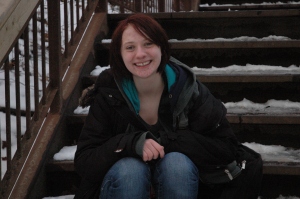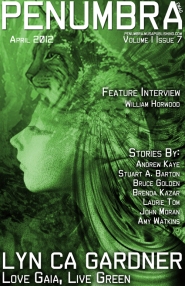Blog Archives
Growth is Only Accomplished Through Challenge
I’ve long believed that a good writer entertains and teaches others, but a great writer is always learning and growing themselves. For those who simply want to get a book published to share their story or just to see their name bound on a book, it’s all right to stop learning after the first novel’s finished.
For those of us who want to be career writers, it’s essential to keep learning and developing our craft throughout our lifetimes. A writer who stops growing and learning stagnates. Their novels become stiff and dull and lacking in surprises. People stop getting excited about their next novel, if it even gets published. When you accept that you’ve reached a good place in your writing and you feel satisfied with that, you stop achieving and sometimes you even start going backwards. Creativity is a muscle of the mind, and it becomes weaker when we challenge it less.
If we can learn just one thing during the process of creating every novel, we can keep ourselves from stagnating. The only way for us to do this efficiently rather than accidentally is by intentionally challenging ourselves to become better and to learn more.
There are many ways we can challenge ourselves as writers. Our challenges can come from ourselves, from the internet or from our friends. The internet is one of the greatest resources for writing challenges that’s ever existed–through it you have access to thousands of prompts and group challenges.
If you’d like to shake up your writing and challenge yourself to learn something new, try one of these things:
- Write in a new genre.
- Write in a new format–plays, essays, poetry.
- Write a project without using a specific letter.
- Write about a place you’ve never been to.
- Write a first person piece about someone of the opposite sex or from a different culture.
- Write a persuasive piece you don’t agree with.
Every time you get stuck and you start to feel like you’re stagnating, come back and try one of these challenges. Not only will they inspire you to write something, but they’ll challenge you to become a better writer and help you learn the craft.
For those of you who’d like some structured help to challenge yourselves, I’ve decided to run a 7-day workshop at the beginning of June. I haven’t, on the other hand, picked a topic for the workshop. I’ve had several ideas bouncing around in my head, and I know which ones would be most fun or useful for me, but I want to make sure that I pick the one that will be most useful to you.
Please vote for the workshop you’re most interested in–and in the comments, if you’d like, please tell me why that workshop interests you the most.
Finished My Novel
I managed to finish my novel last week, at around 120, 000 words. Once Nanowrimo was over and I stopped padding the word count, everything went along pretty quickly. To be honest, I kind of hurried through the last two battles because I wanted to be done with that monster draft. But I finished it, which means I get to spend my Christmas break creating a plan of attack for the next edit of Moonshadow’s Guardian.
For those of you still finishing your novels, keep going. Take advantage of whatever time you have off to squeeze in an extra half hour of writing in. No matter how much or how little time you have off, you can still take advantage of a slice of it to finish your novel.
And for those of you who, like me, have finished novels, I have a challenge for you. I’m planning to completely restart a very twisted paranormal romance-ish short story I wrote during the summer, aiming this time to make it a bit longer to include the main characters’ trek through the country they’re in. It’s the first short story I’ve written in a very long time that takes place in this world, and it happens to take place a very long time ago in Scotland, so this will be research intensive. Don’t worry, I’m not asking you to do a lot of historical research.
I am, however, asking you to challenge yourself to write either one fairly long short story–I’m thinking somewhere between 10-15K for mine–or a couple of shorter short stories between now and January ninth. That may seem like a completely arbitrary date for you, but that’s when my break ends and it also gives everyone two weeks to create something they enjoy. I’m not asking you to edit this right now, and in fact, in the new year I’ll be writing a couple posts about editing short stories before I break into novels.
So over the next two weeks, set aside some time for yourself to write. Don’t let anyone interrupt you. Right now we’re going to write some stories together, and in the New Year, we’re going to turn them into publishable stories.
What are you working on this holiday season?
Editing Week Two
So this week I managed to finish my last essay for school and on top of that, I managed to edit three chapters of Moonshadow’s Guardian-though it seems most of the editing in recent chapters has actually been writing new scenes. I’m pretty pleased with my progress as I’m currently sitting at 51 pages of the new draft and 17, 000 or so words. I’m confident that I can have this draft finished in another three or four weeks.
The only frustrating thing about it is that I know I’m going to have to spend a lot of time editing all the new scenes that I’m writing. They’re well written, but there are always ways to make the work better, and stuff that’s already been looked over and edited once will read better than stuff that hasn’t.
Today I had to do some research on swamps in order to properly write one of my scenes. I discovered that although I have an idea what a swamp looks like, I didn’t really know anything else about them. So I took an hour out of my day and looked through various websites about various swamps. I ended up deciding on something close to the ecosystem of Florida Swamps. I haven’t used a lot of what I learned yet, but it did help a little with the scene I was working on and it will probably help more with the upcoming swamp scenes.
One interesting thing I learned today is that there’s a swamp creature called a Coypu or Nutria and that it’s a little rodent type deal. I’m not spending a lot of time in the swamp, but I’ll probably spend more time there in the next book, so this information will definitely come in useful.
It’s important that you take the time to research things you need to know-to learn about animals you’re not very familiar with, ecosystems, philosophies, ideas. Things you want to include in your book but that you don’t know much about. This is particularly true if you’re trying to mimic a culture or time period other than your own-never assume that you know enough. Always keep studying the world around you the same way you keep studying your craft.
Next week I plan to continue editing my book and to start a new short story. It’ll probably be a lot easier to hit my writing goals now that it’s summer; last summer and the summer before that I partied too much and didn’t write enough, but this summer I’m going to work my behind off-after all, I’m almost 18, a proper adult, and I need to act like it and take my dreams seriously.
How is your editing going? Have you stopped at any point to do research or background work?
Editing Tips and Challenge
Editing is probably the most dreaded part of writing for the majority of writers out there-submission being a whole different thing altogether. It’s all about taking apart your creation, this thing you love and have put your blood, sweat, and tears into, and tearing it apart. Once you’ve torn it apart you need to sew it back together, minus some of the prettier pieces and adding some less pretty but more functional parts. It’s hard work-harder than spitting out a first draft and even harder than spitting out an entirely new second draft.
Right now I’m editing my novella, Moonshadow’s Guardian, and I’ve reached a disheartening point. I’ve written new first chapters and now I’m actually editing things I’ve already written, which is always harder.
For this edit, my main goals are to spend more time on the subplot which will become the main plot of the second book-essentially throwing in political intrigue-to make Riana more compassionate, and to add more sounds and smells to the story. I’m hoping that along with a couple minor story changes, this will make the novella almost ready for submission.
With every edit you should have major goals. It’s hard to fix every problem with your story in one edit, and for most of us, it’s easier to do two or three edits, each one focusing on a couple of specific story issues. You should also have goals for each day of editing. Use these goals to help keep you motivated and to evaluate your progress.
Be careful not to overwhelm yourself. A lot of the time editing is much harder than writing, so you’ll need to allow more time for the edit than you did for the first draft. Only focus on editing a couple of scenes a day. Personally I like to do shorter chapters in one day and longer chapters in two. And don’t be afraid to take a day or two off once in a while-in fact I’d almost suggest taking the occasional day off to work on short fiction prompts or something similar-but don’t let yourself abandon it altogether for weeks on end.
I’ll admit, in spite of all this advice, I’m not the greatest at staying on track with my editing goals. There’s always too much to do, especially when you’ve got a big pile of homework. And you know you’ve hit writer’s block when you’re doing homework instead.
So, for all of you out there editing your projects, I’d like you to join a challenge with me. For myself, I plan to edit three chapters every week until Moonshadow’s Guardian has been edited completely. You get to pick your own amount-make sure that it’s enough to challenge you but not enough for you to get discouraged. The weeks are Friday to Friday, and each Friday I will make a post to let you know how my editing is going and to give some editing tips or links. I’m asking you to comment with your own progress and-if you’re comfortable with it-a sentence of your story.
How quickly do you think you can edit?



